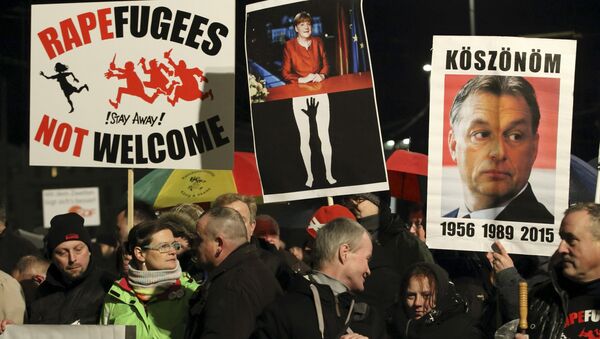"Right-wing extremism, xenophobia and terrorist attacks are damaging Germany's image abroad and could have an impact on the volume of inbound travel to the country that would then affect its tourism economy," the spokesperson said.
According to the spokesperson, in 2015 the volume of overnight stays made in Dresden fell by 3 percent to 4.3 million, the first time the number declined in six years. In the first half of this year the figure went down by further 0.2 percent.
"Thus, a decreasing trust in the stability and safety of a region has detrimental effects on attracting foreign investment or venture capital. As some severe xenophobic incidents in eastern German states became known internationally, this poses a threat to the economic development of Eastern Germany, which is in need of a higher internationalisation," the spokesperson added.
The results of the study regarding the reasons underlying the rise of xenophobia and right-wing extremism in East Germany are expected in March 2017, the spokesperson said.
According to the spokesperson, a study titled "The causes of and background to right-wing extremism, xenophobia and xenophobic attacks in eastern Germany, and the concentration thereof in individual regions in eastern Germany" has been ordered early this year with the aim to uncover details of the reasons behind xenophobia and right-wing extremism in East Germany.
The report cited statistics collected by the federal intelligence agency which showed that the average rate of cases of right-wing violence in East Germany in 2015 per million people exceeded that in the west of the country.
The highest rate was in Mecklenburg-West Pomerania (58.7 cases) and the lowest in Thuringia (33.9). Berlin had the average of 37.9 cases of right-wing violence per million inhabitants, compared to 10.5 cases in the western states.




